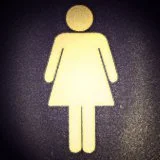“I am the way, and the truth, and the life. No one comes to the Father except through me.” — John 14:6
How do we square the words of Rabbi Lefin—“Do not allow anything to pass your lips that you are not certain is completely true”—with the question most dreaded by every husband or boyfriend—“Does this dress make me look fat?”
Yeshua’s statement, “I am the way, and the truth, and the life,” provides a clue. We wouldn’t have been too surprised if Yeshua had said, “I know the truth,” or “I speak the truth.” After all, the Lord promised Moses, “I will raise up for them a prophet like you from among their own people; I will put my words in the mouth of the prophet, who shall speak to them everything that I command” (Deut. 18:18). Yeshua is the promised prophet, who has the truth and speaks it forth, but he goes way beyond that fact to say “I AM the truth.”
The truth is ultimately not just abstract or propositional, but in its highest form is lived out. We see this in the Torah and throughout the whole of Scripture, which teaches us truth not through lists of theological facts or legal stipulations, but primarily through story. God himself reveals who he is through acting within the human story, and does so most fully in Yeshua the Messiah.
This lived-out truth requires relationship, which is another point of Yeshua’s saying. When he says “I am the truth,” he is telling us that to know the truth we must know him. We might already have a collection of some true statements and formulas, but to have Truth as a real and active force in our lives, we must draw near to Messiah.
So, when we commit to not speaking anything “that you are not certain is completely true,” it’s not just a matter of saying the right words and avoiding the wrong words, although that’s important. We could say something that we are certain is completely true, but use that truth as a weapon to discredit or destroy another person. When we speak truth, we are responsible to convey not just true data, but true meaning.
I remember several years ago reading about a prominent Christian spokesman who claimed that the anti-Christ (a future, extremely powerful false Messiah) would be Jewish. Now this man was a devoted student of Scripture, and believed he’d discovered this “truth” through accurate interpretation of the Bible, but he forgot to think about how it would sound to Jewish ears. I recently heard another knowledgeable Christian, a seminary professor, speaking of the holocaust in a way that sounded like he was attributing it to Jewish rejection of Jesus. He may not have intended that meaning, but apparently he wasn’t concerned enough to go beyond putting words together to the more important step of thinking what his words might mean to someone else. He didn’t try to enter the difficult story of Jewish-Christian relations and find a way to live his truth there. And if there wasn’t a way to live it, or live with it, there, perhaps it wasn’t the truth after all, and he needed to go back to the theological drawing board, or just say nothing.
When Yeshua says “I am the truth,” then, he is telling us that truth entails relationship, truth is to be lived out, ultimately in him, but also within whatever context we try to speak it. So, gentlemen, perhaps now we are ready to respond to those chilling words, “Does this dress make me look fat?”


